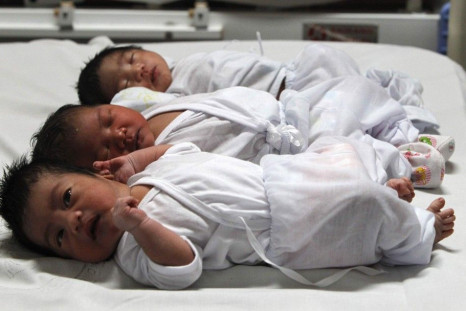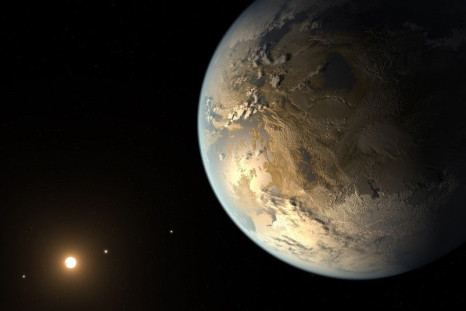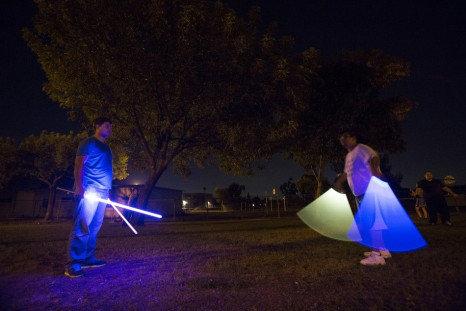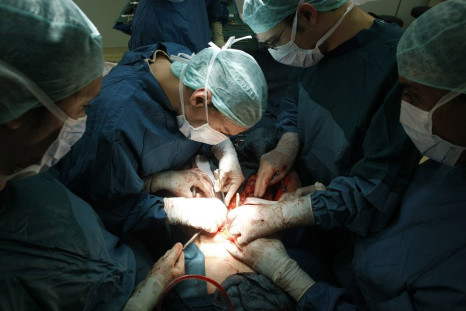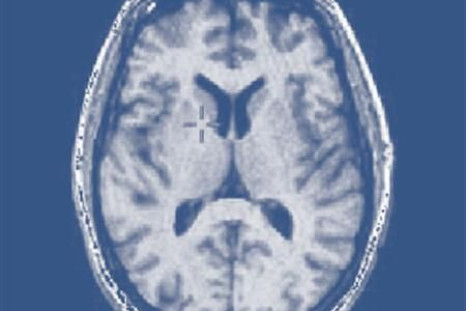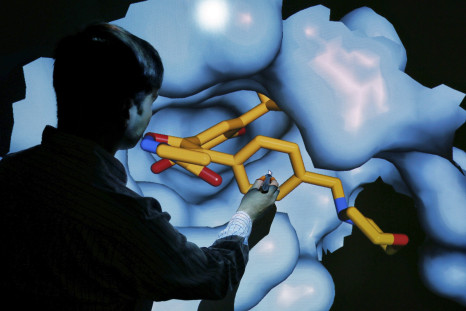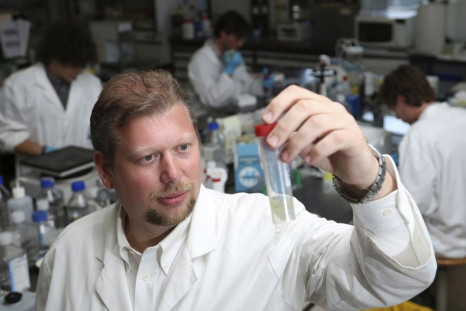More From RENU RANGELA
It is possible to train the brain to regulate negative emotions
The human brain can be computer-trained to regulate negative emotional reactions, suggests a new study.
Jan 07, 2016
Scientists raced against time to save the 4.5 billion-year-old meteorite in Australia
It was touch and go for Australian scientists who had to race against time to recover a meteorite older than Earth before it got washed away by heavy rain.
Jan 07, 2016
North East UK is sitting on diabetes bomb, ready to explode in 2016
With the number of diabetics in the UK crossing the four million mark, the North East region of the country is set to explode under the impact of the disease, suggests new data.
Jan 06, 2016
Aussie study claims climate change is affecting farmers’ mental health
An Australian study suggests that climate change is having a detrimental effect on the mental health of farmers.
Jan 06, 2016
NASA: US airlines can save billions through green technologies
NASA has developed a set of new green technologies that can help US commercial airlines save billions of dollars.
Jan 06, 2016
Scientists explore Arctic through virtual reality to remain sane in space
Astronauts are trying to learn how to live and remain sane in the barren space above the Earth from exposure to the rough and tough Arctic terrain.
Jan 06, 2016
Scientists discover that clouds double El Niño’s destructive power
In a major discovery, scientists have found that clouds enhance the power of the devastating El Niño phenomenon two-fold.
Jan 06, 2016
Smoking is dangerous not just for humans, but for pets too
Smoking has for long been known to be dangerous for our loved ones but now a new research suggests it is harmful for pets too.
Jan 05, 2016
India to develop car batteries using spacecraft technology
In a move that could drastically reduce the cost of car batteries in the future, India has initiated a research to develop car batteries based on spacecraft technology.
Jan 05, 2016
US military gets real with `Star Wars’ through futuristic war games
It could have been something out of "Star Wars: The Force Awakens," except that it was for real.
Jan 05, 2016
Brain chemistry can reveal the hour of death, suggests new research
Forensic scientists can ascertain the time of death in case of a sudden or mysterious death by studying the brain’s biological clock.
Jan 05, 2016
Addition of new elements in the periodic table makes science textbooks around the world outdated
Science textbooks around the world have gone got out-of-date with the addition of the four new elements to the periodic table.
Jan 05, 2016
Twins born minutes apart but in different years
In a strange quirk of fate, twins have been born to parents in San Diego in the US in different years.
Jan 04, 2016
China upgrades its army to tackle space race and cyberwars
China has modernised its army to handle the growing global space race and cyberwarfare.
Jan 04, 2016
Seaweed shortage hits UK cosmetics, medicine industries
The UK cosmetics and medicine industries are facing an unusual problem of red algae seaweed shortage.
Jan 04, 2016
Sugar can increase risk of breast cancer
A new study suggests that high intake of sugar, especially fructose, can increase the risk of breast cancer.
Jan 04, 2016
New gravity measurement method could help find life-harbouring planets
Scientists have come up with a new method to measure gravity on distant stars, which could help identify planets capable of harbouring life.
Jan 04, 2016
Scientists find why birds do not go grey with ageing
Scientists have unveiled the mystery behind the absence of greying in ageing birds – a discovery which may help in the development of fade-proof clothes and paint.
Dec 29, 2015
The scientific reasons behind falling in love, according to a new research compilation
Women in red are more likely to stimulate sexual desire among men, according to a new research compilation. This is one of the 10 weird factors that influence love.
Dec 29, 2015
Diabetes linked to radiation from cell phone tower
Radiation from cell phone towers can cause diabetes, among other health hazards, claims a Saudi professor.
Dec 29, 2015
Fans of science fiction such as 'Star Wars' are narcissists, suggests new study
Fans of "Star Wars" are not going to like what a new study has to say about them.
Dec 29, 2015
‘Star Wars’ movie success driven by nostalgia, social science explains link
An empirical research has identified nostalgia as the prime reason behind the stupendous success of the Star Wars franchise, film after film.
Dec 29, 2015
NASA: War has cleaned up Syria’s air
In a surprise finding, NASA has discovered that the air in Syria has become cleaner since the outbreak of the war there.
Dec 24, 2015
Indian startup grows artificial human liver in lab
In an important breakthrough, researchers at an Indian biotech startup have developed a human liver in the laboratory.
Dec 24, 2015
Iceland’s volcanoes have enough energy to power the UK
Iceland is working on a project to tap into the geothermal energy of its volcanoes to help power the United Kingdom.
Dec 24, 2015
Beware of unexplained depression; it could be a brain tumour
Persistent unexplained depression could be the result of a tumour in the brain, warn doctors.
Dec 24, 2015
Study: Only humans are capable of mental time travel
Mental time travel is an exclusive capacity of human beings and does not exist in animals, suggests new research.
Dec 23, 2015
High cholesterol may reduce Alzheimer’s and dementia risk
Debunking existing theories, a newly compiled research suggests that high cholesterol is not the killer it is thought to be and may actually be good for the heart.
Dec 23, 2015
Study uses controversial posts to analyse rapist's psychology
The controversial “ask a rapist” thread has been used to conduct research on the psychology of a rapist.
Dec 23, 2015
Scientists successfully observe 2-phonon quantum interference for the first time
For the first time in the world, scientists have succeeded in observing two-phonon quantum interference at the intended time.
Dec 23, 2015
Pages
- PREV
- 1
- 2
- 3
- 4
- NEXT











